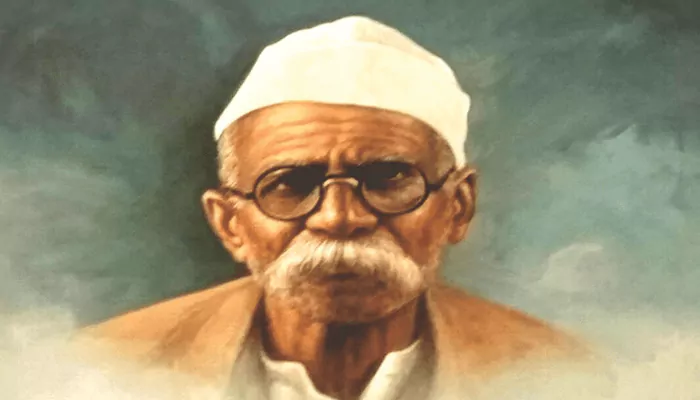
The engineer who turned revolution into reform, and rebellion into renewal.
Pandurang Mahadev Bapat—better known as Senapati Bapat—lived a life unlike any other in India’s freedom struggle. He began as a bomb-maker trained in Europe, ready to take the colonial regime head-on. But over time, Bapat evolved. From revolutionary violence to Gandhian reform, from secret missions to leading village protests, he bridged two very different paths. His journey wasn’t about glory—it was about conviction.

Born in Parner, Maharashtra, in 1880, Bapat belonged to a modest Chitpavan Brahmin family. He was a brilliant student who won a scholarship to Edinburgh University to study engineering. But while he explored science, he was also drawn to the cause of India’s freedom.
In London, he joined India House, a centre of revolutionary nationalists like Vinayak Savarkar. His interactions with Russian revolutionaries and exposure to anti-colonial ideology shaped his thinking. He even went to Paris to learn the art of bomb-making. However, due to his growing political involvement, he never completed his degree. Instead, he returned to India in 1908, carrying revolutionary literature, a bomb-making manual, and the dream of armed resistance.
Back in India, Bapat became involved in underground activities. Though not directly implicated, he was arrested following the Alipore Bomb Case and spent around three years in prison, from 1912 to 1915.
Prison marked a turning point. He began questioning the long-term impact of violent rebellion. Influenced by Gandhian philosophy and his introspection, Bapat emerged with a renewed focus, not on destruction but on building a better, fairer society.
Bapat’s transformation took shape during the Mulshi Satyagraha in the early 1920s. When the Tata Power Company planned a dam in the Mulshi region near Pune, hundreds of peasants faced displacement. Bapat led one of the earliest organised protests against forced land acquisition.
He camped with villagers, built awareness, and led peaceful demonstrations. But he also supported what he called shuddha satyagraha—a form of resistance that could include limited force if morally justified. He was arrested for damaging construction tools but surrendered voluntarily. Though the dam was eventually built, the compensation largely went to landlords, leaving tenant farmers devastated. Still, Bapat’s protest laid the groundwork for future rights-based movements.
His leadership during this struggle earned him the title “Senapati”, or commander.
For Bapat, freedom wasn’t just about political independence—it was about social change. One of his most symbolic acts was sweeping village streets himself, challenging caste-based ideas of purity and pollution.
This wasn’t just about sanitation. It was a rebellion against untouchability and social hierarchy. He believed cleanliness was a shared civic duty, not the burden of one community. Through simple acts, he tried to re-engineer India’s social conscience.

On 15 August 1947, as India celebrated its independence, Senapati Bapat was chosen to hoist the national flag in Pune. The man once jailed for sedition now led the freedom celebration. It was a quiet but powerful image of redemption and recognition.
After independence, he continued to raise his voice. He supported the Goa Liberation Movement, Hyderabad’s integration into India, and the Samyukta Maharashtra Movement for a unified Marathi-speaking state. Bapat never took a government post. He remained an activist, a teacher, and a servant of the people until he died in 1967.

Senapati Bapat is remembered today, along with roads and memorials in cities like Pune and Mumbai. But his actual legacy lives in the lessons he left behind.
He was a rebel who became a reformer, an engineer of bombs who became a builder of justice. He believed in freedom, not just from the British but also from inequality, exploitation, and silence. He taught India that real freedom is not given but earned and sustained by action, empathy, and truth.
In remembering Senapati Bapat, we honour a man who turned fire into fuel for change.